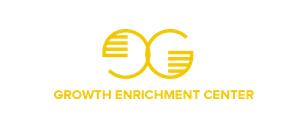
Adopting a positive mindset can markedly boost your performance by reframing challenges into opportunities, enhancing your focus through visualization, and setting achievable goals. This approach not only cultivates resilience but also improves your emotional well-being, reducing stress and fostering a healthier, longer life. Embracing positivity paves the way for increased motivation and better relationships. Consider how deeper exploration into these strategies can unveil even greater potential, maximizing your personal and professional growth.
Key Takeaways
- Employ cognitive reframing to view challenges as opportunities, enhancing problem-solving and resilience.
- Use visualization techniques to mentally rehearse success, aligning brain activity with goal achievement.
- Set SMART goals to provide clear, actionable targets that boost motivation and focus.
- Cultivate a positive mindset to strengthen emotional resilience and reduce stress, improving overall performance.
- Practice gratitude and positive thinking to enhance emotional well-being and maintain high levels of motivation.
Harnessing Cognitive Reframing for Enhanced Performance

While you may not realize it, the power of cognitive reframing can greatly boost your performance. This technique involves shifting your perspective to see obstacles as opportunities, enhancing your cognitive flexibility.
By transforming challenges into potential growth points, you're not just solving a problem; you're expanding your skillset. It's about learning from every situation rather than feeling defeated.
This mindset shift doesn't just help you overcome immediate hurdles; it builds a resilient foundation for future challenges. Embrace this approach, and you'll notice how problems become less intimidating and more like puzzles awaiting your solutions, propelling you toward success.
The Power of Visualization and Goal Setting
Building on the foundation of cognitive reframing, you can further enhance your performance through the powerful duo of visualization and goal setting.
By employing visualization techniques, you create a vivid mental picture of achieving your goals, effectively priming your brain to recognize and seize opportunities that align with these aspirations.
Setting SMART goals adds a structured approach to your vision, ensuring each step is clear and actionable.
This synergy not only boosts your motivation but also systematically increases the likelihood of goal achievement.
Scientific studies affirm that such practices can greatly impact performance by aligning mental focus with practical outcomes.
Building Resilience Through Positive Thinking

When you adopt a positive mindset, it fundamentally strengthens your resilience, enabling you to navigate through life's challenges with greater ease and confidence.
Positive thinking isn't just about feeling better—it's about creating mindset shifts that transform your approach to obstacles.
Here's how you can implement resilience practices effectively:
- Reframe Challenges: View setbacks as opportunities for growth.
- Cultivate Gratitude: Focus on the positive aspects of your current situation.
- Maintain Perspective: Keep the bigger picture in mind during tough times.
- Seek Solutions: Constantly look for ways to overcome difficulties and advance.
These strategies foster a resilient, proactive approach in all life's arenas.
Psychological and Emotional Benefits of a Positive Mindset
Embracing a positive mindset not only elevates your mood but also greatly enhances your psychological and emotional well-being. By adopting such an attitude, you're not just feeling better temporarily; you're setting the stage for sustained emotional health. This shift can remarkably boost your emotional intelligence, enhancing how you perceive, understand, and manage emotions both in yourself and in others.
| Benefit | Description |
|---|---|
| Enhanced Motivation | Positive mindset fuels motivation techniques, driving you to pursue goals with heightened enthusiasm. |
| Reduced Stress | Positivity lowers stress levels, leading to a more balanced emotional state. |
| Better Emotional Control | Increases your ability to manage emotions effectively, essential for personal and professional relationships. |
| Growth in Personal Relationships | Improves empathy and understanding, strengthening connections with others. |
This foundation not only helps in personal growth but also in achieving professional excellence.
Impact of Positivity on Health and Well-being

While maintaining a positive mindset, you'll likely notice significant improvements in your physical health.
Adopting a positive lifestyle not only boosts your emotional resilience but also directly influences your overall well-being.
Scientific studies consistently show that positivity can lead to:
- Enhanced immune system functioning.
- Lower levels of stress and anxiety.
- Quicker recovery from illness or injury.
- Increased longevity and life satisfaction.
Frequently Asked Questions
How Do I Measure Progress in Developing a Positive Mindset?
To measure progress in developing a positive mindset, track mindset metrics like resilience and attitude changes. Record daily reflections, monitor reactions to challenges, and observe shifts in engagement and problem-solving approaches over time.
Can a Positive Mindset Help in Overcoming Physical Disabilities?
Yes, a positive mindset can greatly aid in overcoming physical disabilities by fostering adaptive resilience and mental fortitude, enhancing your ability to adapt and persevere through challenges with an empowered, solution-focused approach.
What Are the First Steps to Adopt Cognitive Reframing Techniques?
To start cognitive reframing, you'll first shift your perspective. View problems as puzzles, not disasters. Adopt cognitive restructuring as your mental toolkit. Focus on initial strategies like identifying negative thoughts and challenging their validity.
How Does Positivity Affect Relationships at Work?
Positivity improves your relationships at work by enhancing team dynamics and enriching workplace culture. It fosters collaboration, boosts morale, and encourages empathy among colleagues, leading to a more supportive and productive work environment.
Are There Age-Specific Techniques for Building Positivity in Children?
You can build positivity in children through age-specific techniques like positive play, fostering a growth mindset by encouraging resilience and learning from mistakes, and scientifically nurturing their ability to adapt and overcome challenges empathetically.
Conclusion
So, you've seen how reshaping your thoughts, visualizing success, and setting precise goals can transform challenges into victories. Embracing a positive mindset not only boosts your performance but also fortifies your resilience and enriches your emotional health. Remember, each positive thought propels you closer to well-being and peak achievement. Start now; let positivity be your guide and watch how it elevates every aspect of your life, scientifically enhancing your journey towards a more fulfilled and vibrant existence.

